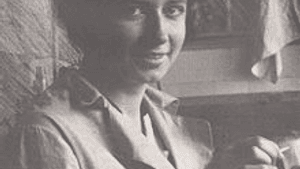Stay in the Loop
BSR publishes on a weekly schedule, with an email newsletter every Wednesday and Thursday morning. There’s no paywall, and subscribing is always free.
Ungodly acts in a wartime convent
'Les Innocentes' ('The Innocents'), directed by Anne Fontaine

Everything in Les Innocentes (The Innocents), an extraordinary film directed by Anne Fontaine, unfolds around an existential crisis. In the winter of 1945, as World War II ends, soldiers of the victorious Red Army entering Poland have raped the nuns at a Benedictine convent, and several become pregnant.
One of the nuns seeks medical help from a French Red Cross dispensary in Warsaw. A doctor, Mathilde (Lou de Laâge), who is also a Communist and resistance fighter, is moved to come to their aid. The situation sets up intense conflicts for both nuns and doctor because they all must keep the pregnancies secret lest they result in the closure of the convent.
Unrelenting conflict
The film, based on the real life experience of Red Cross doctor Madeleine Pauliac, is an unmitigated drama of the conflicts of values and beliefs that haunt everyone in this situation. Mathilde is caught between her physician’s desire to help women in distress and her frank disagreement with the policies of the convent, especially those of the Mother Superior, who, in a key moment, leaves one of the infants “to providence” beneath a crucifix on a snowy hill. She does this to protect the convent and the nuns, but they have become attached to their babies. Each of the nuns is terrified by morning sickness and labor pains, which they barely understand.
In the midst of the upheaval, Mathilde has a love affair with a fellow physician, Samuel (Vincent Macaigne), who is Jewish. Both of them question her reasons for helping the nuns. They also are doubtful of their motives in being attracted to one another. To add to Mathilde’s confrontation with the dark side, on one occasion while driving alone at night, she encounters a group of Russian soldiers, barely escaping rape herself.
For Mathilde, and in some way for the nuns as well, these various scenarios raise questions about men’s conquests of women and the very nature and purpose of sexuality itself. What can it mean if, like the nuns, one has vowed chastity and now finds oneself attached to an infant born from sexual violation?
A film of seamless integrity
Thanks to outstanding direction, cinematography, acting, and editing, everything comes together to effect a lucid and suspenseful portrayal of a traumatic situation. The sequences are perfectly coordinated with one another so that plot complexities are self-evident and coherently interrelated. Thanks to superb acting, the characters are completely believable, and we become intimately familiar with them. The film’s coloration, with layers of hues over a grayscale background, is just right for both the storyline and its historical time period, and suits the wintry, woodsy location shots.
A point about this film that might be missed is that it is not just about the conflicts between religion, science, and real-life exigencies, not just about a convent and a doctor who tries to help them. It is, more profoundly, about how all of us must work out our own identities and existential choices within accepted social dictates.
All the characters are socially programmed, yet they have choices. The film reflects French existential philosophy from Sartre and Camus to Levinas, Foucault, and others, all of whom emphasized that there are times we must act without knowing the “why” of our decisions, without having a God or a just society to decide for us.
Feminism and the redemption of the women
The film has a French feminist slant, notably reflecting the writings of Helene Cixoux, Julia Kristeva, and Luce Irigiray, in which the feminine is seen as a form of bondage and feigned innocence. The women in this film are faced with the challenge of asserting themselves against the passivity and obedience that defined women’s roles at the time. Indeed, the discovery and affirmation of the beauty and goodness of their own sexuality and reproductive capacity over and against the religiously imposed “abhorrence of the flesh” and the patriarchal domination of the phallus is the source of hope that pervades The Innocents and is its ultimate justification as a work of art.
What, When, Where
Less Innocentes (The Innocents). Anne Fontaine directed. Philadelphia area showtimes.
Sign up for our newsletter
All of the week's new articles, all in one place. Sign up for the free weekly BSR newsletters, and don't miss a conversation.

 Victor L. Schermer
Victor L. Schermer